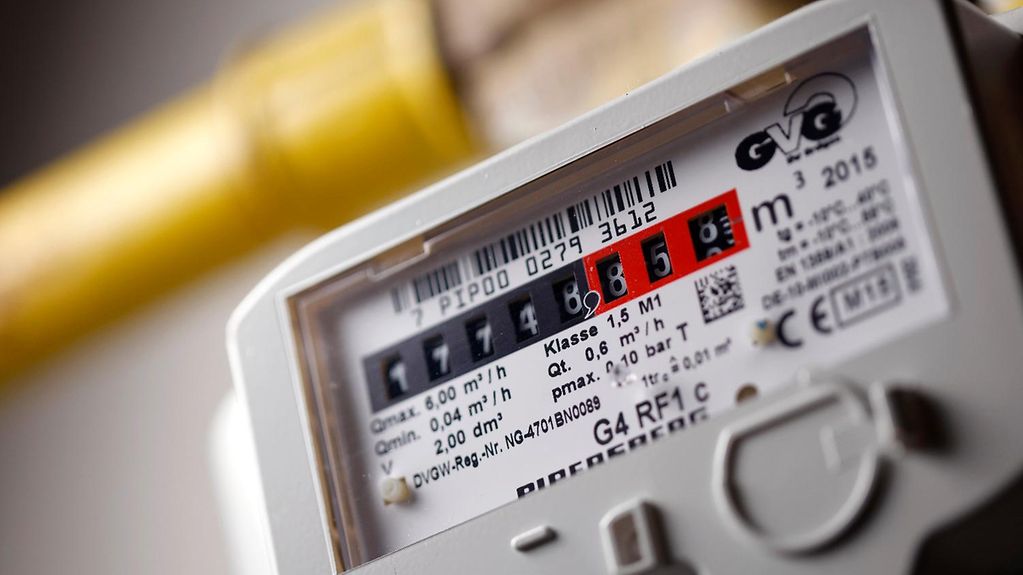FAQ
Prices in Germany are rising even more sharply as a result of the new gas procurement surcharge, which is why the Federal Government is relieving people of the burden of value added tax (VAT). As of October, and until March 2024, the VAT on gas consumption will be 7 rather than 19 percent. What will the impact of the VAT reduction be and how will it be received by the public? FAQ.
4 min reading time

The Federal Government's aim is to secure the supply in Germany while at the same time keeping a close watch on people with low pensions and low incomes.
Photo: picture alliance / Geisler-Fotopress
What is the purpose of the gas procurement surcharge?
As a consequence of its war of aggression against Ukraine, Russia has reduced its gas supplies to Europe. Gas importers are now facing significant costs and financial liabilities and need to procure replacements quickly from other sources to avoid being in breach of contract vis-à-vis their clients themselves. The reduction in Russian supplies has also made gas a scarce commodity and the price has risen very sharply as a result.
To be able to absorb these immense replacement costs in the long term and ensure security of supply in Germany and to prevent insolvencies, some of the costs will have to be passed on to consumers from October onwards. Initially and for a limited period ending in March 2024, all gas consumers will pay an additional 2.4 cents per kilowatt hour via the gas procurement surcharge. There will also be an accounting fee and a storage fee. These surcharges will be subject to VAT.
What exactly is the Federal Government planning?
It is important to the Federal Government to ensure that German consumers are not additionally burdened by the VAT on gas surcharges, which is why they will be reducing the VAT on all gas consumption from 19 percent to 7 percent. The reduced VAT rate will apply for as long as the gas procurement surcharge is levied, i.e., from 1 October 2022 to 31 March 2024.
Gas consumers will receive more relief through a reduced VAT rate on the total gas consumption than they would have been burdened by the regular VAT charge on the gas procurement surcharge.
Why is the gas procurement surcharge not VAT-free?
It is not possible under European law to directly exempt the gas procurement surcharge from VAT, which is why the Federal Government has opted for a general VAT reduction on gas until 31 March 2024. The existing reduced tax rate of 7 per cent will be used in order to limit the implementation effort.
Not only will this relieve ordinary citizens of the additional VAT burden, but it will also relieve them of part of the actual surcharge. This is a significant and socially just relief measure, especially for lower-income households, which are particularly affected by heating costs.
How will the relief package be received by the public?
The Federal Government is using the existing reduced VAT rate of 7 per cent to ensure that consumers will quickly benefit from the reduction. Federal Chancellor Olaf Scholz expects the gas supply companies to pass on the VAT reduction to consumers on a one-to-one basis: "We will also be communicating this very clearly."
How does the VAT reduction work?
According to Federal Government calculations [*], the gas surcharges, which will apply as of October, will amount to a total of approximately 660 euros for a four-person household with a gas consumption of 20,000 kilowatt hours per year. In turn, the VAT reduction from 19 to 7 per cent as planned by the Federal Government will reduce the burden on this household by just under 400 euros a year. The gas surcharges will help gas importers cover the high replacement costs, thereby safeguarding the security of supply for our country.
[*] Calculation basis: net gas price 13.5 ct/kWh, net gas surcharges 3.1 ct/kWh (gas procurement surcharge 2.4 ct + gas storage surcharge 0.1 ct + accounting surcharge 0.6 ct)
The effect of the relief will depend on various factors in each individual case, such as gas price trends, gas consumption, and fluctuations in the gas procurement surcharge.
Has the VAT reduction already been adopted?
Section 12 of the Value Added Tax Act regulates which goods are subject to the reduced VAT rate and changing it will require resolutions to be passed by both the Bundestag and the Bundesrat. The federal states are also entitled to have their say, because a certain proportion of the VAT revenue flows to them.
The Federal Government is currently in discussion on how to implement it. It has not yet been decided whether there will be a separate legislative procedure or whether an ongoing proceeding should be used. The Federal Government will in any event ensure that the VAT reduction will take effect on time.
Are additional relief packages being planned?
The Federal Government's aim is to secure the supply in Germany while at the same time keeping a close watch on people with low pensions and low incomes, which is why, in addition to the relief measures that have been introduced so far, further relief measures will be put in place, whereby social justice will play a major role in this. The Federal Government is working flat out to compile a third, broad-based and socially just relief package that encompasses all population groups, the details of which are currently being coordinated within the Federal Government.